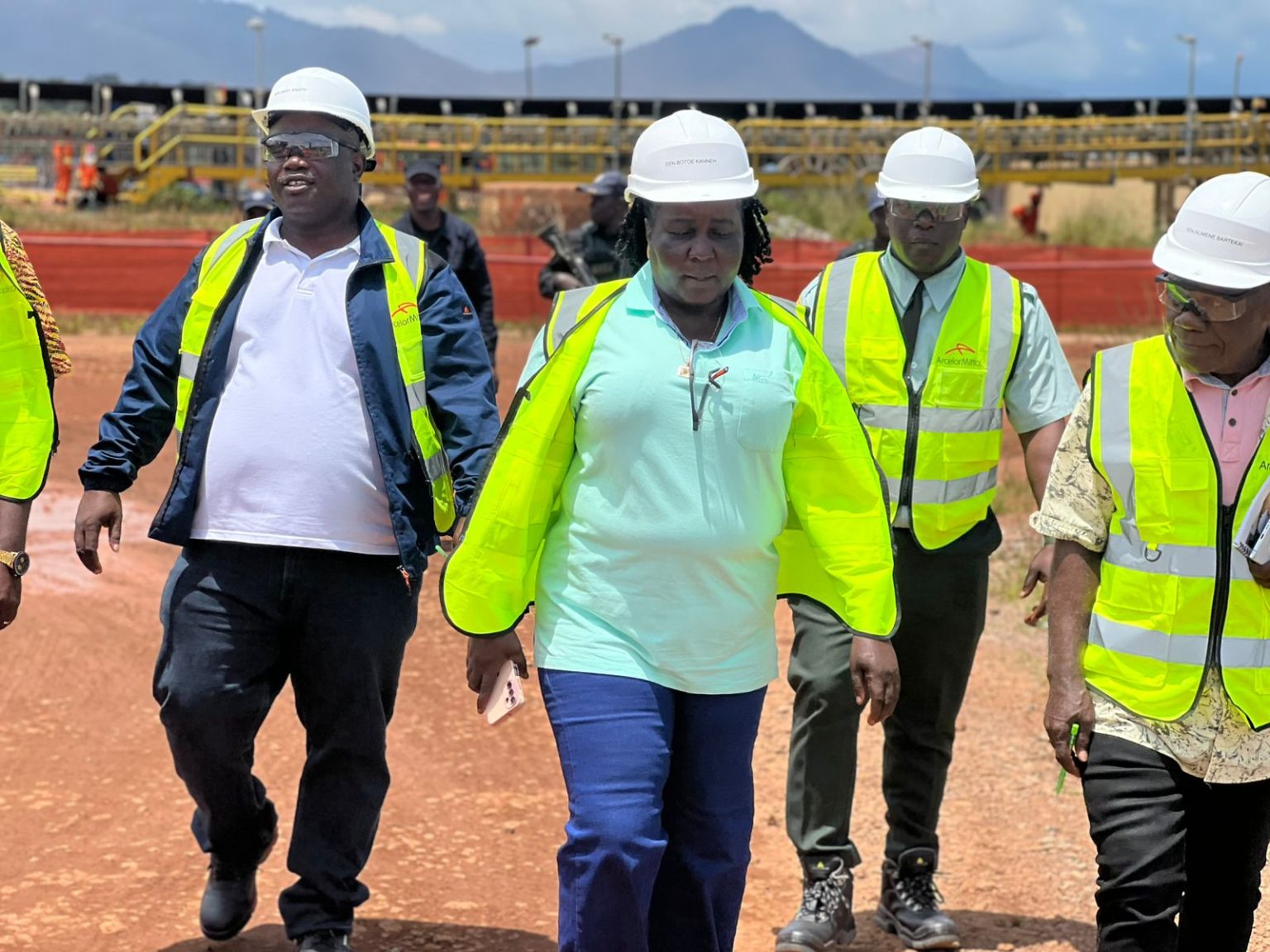A delegation of Liberian lawmakers from the Joint Legislative Committee on Mineral Development Agreements (MDA) embarked on an oversight visit to ArcelorMittal Liberia (AML)’s concession area, triggering a public dispute with Senator Nya D. Twanyen, Jr. of Nimba County. The Senator’s social media post characterized the lawmakers’ visit as a “secret meeting,” insinuating clandestine dealings and sparking a strong rebuke from the committee. The committee asserted that their visit was a legitimate exercise of their statutory duty to monitor AML’s operations and ensure compliance with the Mineral Development Agreement (MDA), a crucial contract for Liberia’s economy. They emphasized the visit’s transparency, noting prior communication and coordination with relevant authorities.
The committee framed Senator Twanyen’s accusations as a reckless campaign of misinformation and political grandstanding, damaging to their integrity and the country’s investment climate. They underscored the importance of constructive engagement with AML, Liberia’s largest private investor and employer, highlighting the company’s contribution of over 5,000 jobs and its potential for further job creation through its Phase II expansion plan. While acknowledging the need for accountability, the committee advocated for a firm yet constructive approach, emphasizing dialogue and problem-solving over confrontation. They invoked President Boakai’s recent remarks at the commissioning of AML’s new iron ore concentrator, which stressed the importance of dialogue in resolving concession-related issues and protecting Liberia’s image.
The lawmakers argued that Senator Twanyen’s divisive rhetoric undermined legislative unity and risked jeopardizing the livelihoods of thousands of Liberians dependent on AML. They urged a collaborative approach, emphasizing the need to balance demands for compliance with the imperative of maintaining a favorable investment environment. The committee highlighted the significance of transparency, due process, and unity in effective legislative oversight, encouraging Senator Twanyen to engage constructively through established channels rather than resorting to social media attacks.
The committee acknowledged existing concerns regarding AML’s compliance with the MDA, citing the company’s own admission of shortcomings during a recent Senate hearing. These included unmet obligations related to infrastructure development and community projects, such as the delayed construction of modern health centers. Despite these acknowledged failures, the committee cautioned against resorting to acrimony and vengeance, emphasizing a solution-oriented approach focused on rectifying issues rather than escalating tensions. They advocated for a collaborative legislative front to maximize leverage in negotiations with AML and safeguard Liberia’s interests.
The lawmakers extended an invitation to Senator Twanyen to join their efforts, promoting face-to-face dialogue and mutual respect as pathways to constructive engagement. They stressed the importance of unified action in advocating for improved outcomes from Liberia’s concession agreements, particularly at this critical juncture, urging against allowing internal divisions to weaken their negotiating position or tarnish the nation’s reputation. The committee concluded by reiterating their commitment to transparency, accountability, and development. Their presence in Nimba, they emphasized, demonstrated their commitment to directly engaging with local communities and assessing AML’s performance firsthand. They pledged to publicly report their findings and pursue appropriate legislative action guided by legal principles, not social media pronouncements.
The committee expressed optimism about resolving the challenges with the AML concession, emphasizing the potential for AML to address its shortcomings and enhance its contributions to Liberia’s development through unified and focused efforts. This incident highlights the complex dynamics between government oversight, corporate responsibility, and political posturing in the context of resource extraction in developing countries. It underscores the importance of balancing accountability demands with the need to maintain a conducive investment climate and prioritize the well-being of affected communities. The ongoing scrutiny of the AML agreement, which has been amended since its initial signing in 2005, underscores the continuing challenges in balancing the interests of foreign investors, government regulators, and local populations in resource-rich nations.


